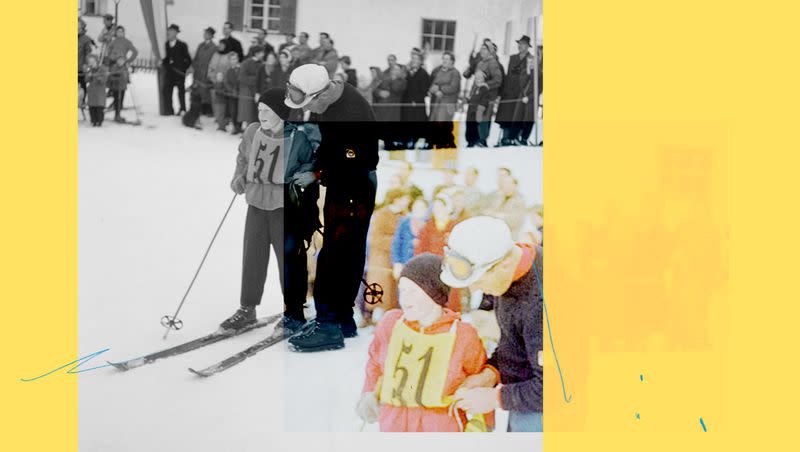Perspective: Ray Romano and the dilemma of every sports parent

- Oops!Something went wrong.Please try again later.
- Oops!Something went wrong.Please try again later.
In a recent interview with Time magazine, comedian Ray Romano describes attending his son’s last high school basketball game and the emptiness that accompanied it. “Yes, it’s all about him, and your pride for him. … But it’s part of who you are, too.”
Romano, who has created a new film based on the experience called “Somewhere in Queens,” says he liked the compliments people showered on him because of his son’s talent, but also understands how ridiculous that seems. “It’s pathetic and selfish for me, I mean, I’m on TV. … I have my own show. I do stand up in front of theaters of people. And that’s not enough? Now I’m going to miss the attention I get in a gymnasium?”
While parents certainly experience pride in their children’s athletic accomplishments, and enjoy getting compliments from others in the stands, watching your kids play sports is actually more than just an occasion for taking credit. I’ve been thinking about this lately. I did not play a lot of sports as a kid — swimming when I was younger and then a school tennis team when I was older — but these days I spend a significant chunk of every weekend watching my children play tennis or soccer or basketball. We’ve also done swimming and baseball.
It’s not that there aren’t downsides. My children are overscheduled. The games start early in the morning and sometimes go well into the evenings. They require more driving than I’d like. Sometimes I’m sitting in the rain or the cold or the blazing heat. And with everyone going in different directions, time when our whole family is together is limited.
What do I like about it? I like getting to watch my children do something they love, without feeling like a helicopter parent. I like watching them interact with their friends and teammates, calling plays and helping others who have fallen (literally or metaphorically). I like watching them cheer when they win, and I don’t even mind watching them process the experience when they’ve lost.
There’s more. I like seeing the way they interact with other adults when I’m not standing next to them. I like watching them receive compliments when they’ve played well, and handle other teams that may not have acted so graciously. I cheer, but I am very conscious about trying not to be part of the action. I don’t shout at refs or argue with the opposing team’s parents, though I see my share of other parents doing both. I want to enjoy this glimpse into my children’s lives as independent beings.
Related
As our kids get older, more and more of their experience with the world is separate from us. In a recent article in The Atlantic (based on her new book, “It All Goes So Fast”), NPR host Mary Louise Kelly describes how her oldest son is about to graduate from high school. For years she missed his soccer games because they happened at the same time as “All Things Considered.” But finally she decided to take some time off so she could see him play. She was told by others: “Game time arrives and the whistle blows and James plays his heart out.” But she hadn’t seen it for herself.
“James was, actually, mostly OK with this,” she wrote. “His dad attended every game he could; the other parents cheered James on; he came home and gave me the play-by-play at dinner. I was … not so OK with this, but I consoled myself with the knowledge that there would always be another game. … Except that the years slip by. Ninth grade slides into 10th slides into 11th. Suddenly, James was a senior. I was out of next times.”
In Romano’s film, the protagonist finds that he has become much too involved in his son’s life, and that his identity is now wrapped up in his son’s. What can he do now that this season of basketball and life are over? But Kelly found something much different. Like all working mothers — all mothers, really — Kelly has regrets. And like all parents, she wonders where the years have gone. She will have plenty of years ahead of her to enjoy her son as an adult too, but the games are fun and there aren’t any do-overs.
It’s something any parent whose child plays a sport should remember.
Naomi Schaefer Riley is a senior fellow at the American Enterprise Institute, a Deseret News contributor and the author of “No Way to Treat a Child: How the Foster Care System, Family Courts, and Racial Activists Are Wrecking Young Lives,” among other books.

